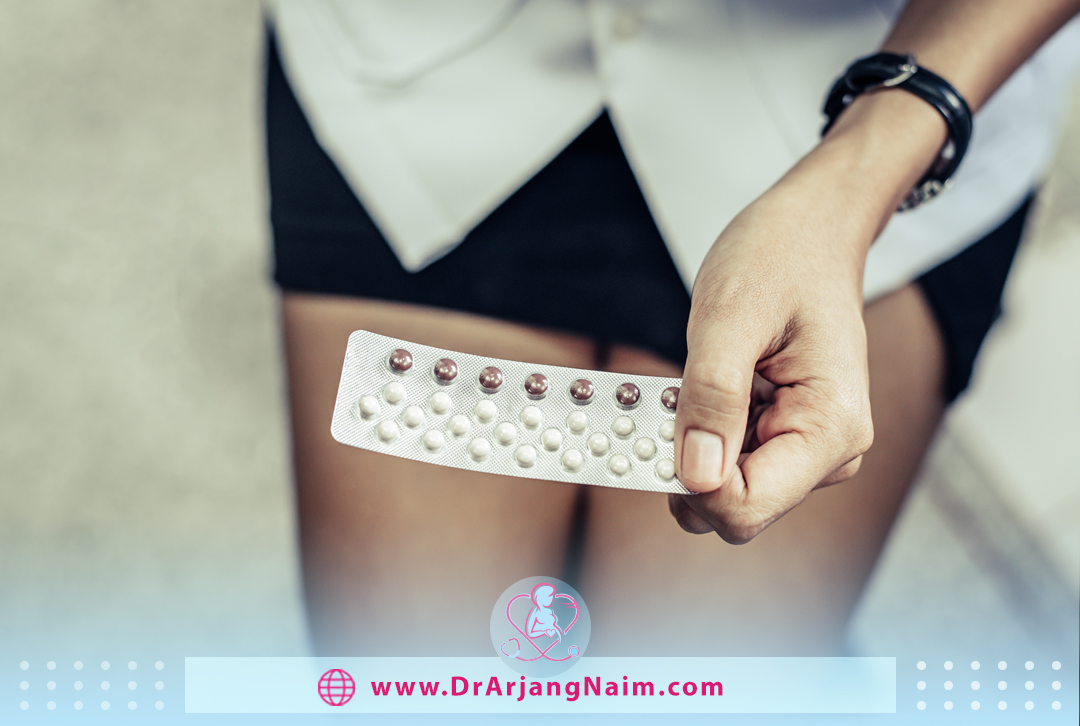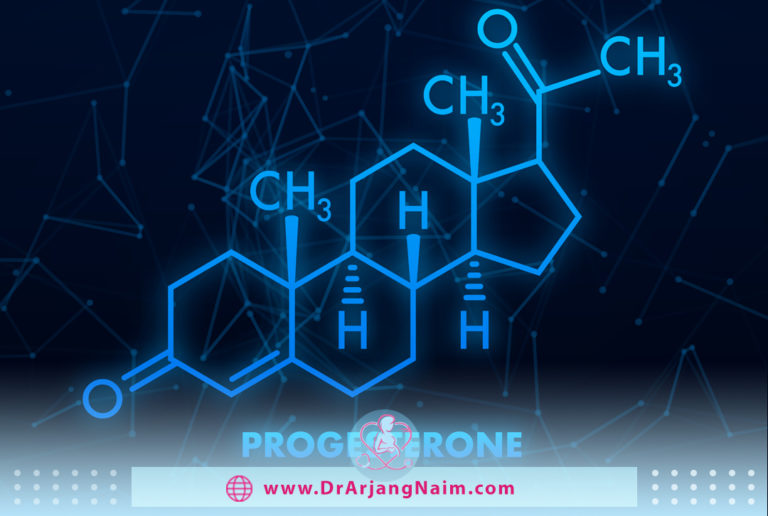Progesterone is the main pre-pregnancy steroid hormone secreted by the female reproductive system. Hormones are chemical messengers in the body that affect various bodily functions, from the sleep-wake cycle to digestion. The menstrual cycle, pregnancy, and fetal development are related. Progestin is a synthetic form of progesterone used for medical purposes.
Function
It has several different roles, starting with the development of breasts during puberty. Its main function is to prepare the body for pregnancy and support pregnancy if it occurs.
Menstrual cycle and pregnancy
Progesterone is an important hormone in both men and women. After the onset of puberty, the ovaries release one egg every month. This process is called ovulation. The egg travels down the fallopian tube, and if it meets sperm, it may be fertilized. The corpus luteum is a temporary endocrine or hormone-producing gland formed from an empty ovarian follicle after ovulation.
The corpus luteum becomes the main source of progesterone, which is necessary to maintain pregnancy immediately after fertilization and implantation.
If fertilization does not occur, the corpus luteum breaks down, less progesterone is produced, and the level is too low for the growth of the uterine wall. As progesterone no longer supports the uterus lining in the corpus luteum, the lining is shed, resulting in menstrual bleeding.
If fertilization occurs, progesterone stimulates the growth of more blood vessels in the endometrium and stimulates the endometrial glands to secrete nutrients that nourish the fertilized egg.
This hormone prepares the lining of the uterus for the fertilized egg to implant and helps maintain the endometrium during pregnancy. After fertilization, the placenta is formed. The placenta begins to secrete progesterone to complement and surpass the progesterone already secreted by the corpus luteum.
The level of this hormone remains high during pregnancy. This prevents other eggs from maturing and causes changes in the breast tissue to prepare for breastfeeding. Progesterone levels decrease steadily just before menopause.
Breast Development
As puberty begins, progesterone stimulates the growth of breast tissue. During each luteal phase, breast tissue is stimulated. It is thought that the increase of this hormone in the luteal phase of the menstrual cycle is the cause of breast swelling, pain, and tenderness, which often occurs in this phase of the cycle.
Mastalgia (breast pain) due to swelling is one of the common symptoms of premenstrual syndrome (PMS).
Other functions
Low progesterone levels are associated with certain problems, such as:
- Miscarriage
- Infertility
- Absent periods (known as amenorrhea)
If you’re having trouble getting pregnant, your doctor checks your hormone levels with a blood test. Recent studies suggest that progesterone supplements may help prevent miscarriage.

Mood and energy levels
Estrogen and progesterone interact with chemicals in the brain to control mood and overall sense of well-being. One-way progesterone does this is through its metabolite, a compound called allopregnanolone.
Allopregnanolone works on a specific receptor in the brain called the GABA receptor. This drug usually has an anxiolytic effect and a sedative quality similar to alcohol and other sedatives such as benzodiazepines.
For some people, the luteal phase surge in progesterone can cause varying degrees of anxiety and restlessness. This reaction is thought to be caused by impaired processing of allopregnanolone.
Normal levels
Progesterone levels are relatively low before ovulation and usually increase when the egg is released from the ovary. The hormone level increases for a few days and continues to increase in case of pregnancy or decreases when menstruation begins. If hormone levels do not rise and fall monthly, it can indicate problems with ovulation, menstruation, or both and may cause infertility.
Women who experience multiple pregnancies naturally have higher progesterone levels than women who are expecting a single baby.
Blood test results can help determine the cause of infertility, help diagnose an ectopic or failed pregnancy, track ovulation, monitor pregnancy health, or help diagnose abnormal uterine bleeding.
Progestin
Progesterone occurs naturally in the body, but laboratories can also produce it. Synthetic steroid hormones with progesterone-like properties are called progestins. Progestin is available as capsules, vaginal gels, implants, intrauterine devices (IUDs), and injections. The uses of progestin include the treatment of the following conditions:
- Birth control
- Hormone replacement therapy
- Menstrual disorders
- Abnormal uterine bleeding
- Breast pain
- Preventing premature birth
- Acne
- Infertility treatment
- Breastmilk production
- Amenorrhea, or absence of menstruation
- Endometriosis
- Endometrial hyperplasia
- Breast, kidney, or uterine cancer
- Changes in hair growth
- Changes in sexual desire
- Anticancer hormonal therapy

Birth control pills
Birth control pills contain progesterone. They cause:
- Preventing ovulation
- Thickening of the mucus in the cervix to prevent sperm from entering
- Changing the lining of the uterus to prevent pregnancy
Hormone therapy
Hormone therapy (HT) helps restore the balance of female hormones. HT can provide progesterone, estrogen, or a combination of these. This medicine is available in the form of tablets, glue, skin gel, nasal spray, injection, vaginal cream, or vaginal ring. Hormone therapy may cause the following symptoms:
- Mood swings
- Sleep disorders
- Anxiety
- Hot flashes
- Vaginal dryness
- Pain with intercourse
The FDA recommends using HT at the lowest possible dose for the shortest possible time to achieve therapeutic goals.
Progestin side effects
Progestin side effects that may occur include:
- Headaches
- Breast tenderness or pain
- Upset stomach, vomiting, diarrhea, and constipation
- Muscle, joint, or bone pain
- Mood swings and irritability
- Excessive worrying
- Runny nose, sneezing, and cough
- Vaginal discharge
- Problems urinating
- Changes in appetite
- Weight gain
- Fluid retention
- Tiredness
Why do progesterone levels fall?
The reasons for its reduction include:
- Ectopic pregnancy
- Decreased function of ovaries
- Amenorrhea
- Toxemia, or preeclampsia, late in pregnancy
- Miscarriage
Why do progesterone levels rise?
The reasons for the increase include the following:
- A rare form of ovarian cancer
- Progesterone overproduction by the adrenal glands
- Adrenal cancer
- Ovarian cysts
- Non-viable pregnancies
- Congenital adrenal hyperplasia (CAH)
Supplements
Supplemental progesterone, made from natural or synthetic sources, can be prescribed for various reasons, from pregnancy support to contraception.
For pregnancy after IVF
For some women, progesterone supplementation may be necessary during pregnancy. If a woman has become pregnant with the help of IVF, she has not ovulated naturally, so the corpus luteum has not produced enough progesterone. The health care provider may recommend some form of progesterone support in the form of a vaginal gel or suppository, pill, or injection until about weeks 10 to 12 of pregnancy. Supplemental may also be used during IVF or IUI to help conceive.

For preterm labor prevention
If a woman has a history of premature birth or premature rupture of membranes in a previous pregnancy, she may be a candidate for using progesterone injections to prevent another premature birth.
For contraception
Oral drugs containing progestin are usually used as a contraceptive to prevent pregnancy.
For conditions that cause excess estrogen
Progesterone and estrogen work together to prepare the body for pregnancy and support many other body functions. In a normal menstrual cycle, pregnancy does not occur; the accumulation and shedding of the lining of the uterus are controlled by the balance between estrogen and progesterone.
If a situation develops where ovulation does not occur, there is excess estrogen in the body, which causes polycystic ovary syndrome (PCOS) and sometimes obesity. In this situation, the doctor suggests using progesterone to help protect the inner lining of the uterus.
Progesterone in men
Progesterone is a female hormone, but men need it to produce testosterone. Adrenal glands and testicles produce progesterone in men.
Levels of this hormone in men are similar to those in women during the follicular phase of the menstrual cycle when the egg follicle on the ovary is preparing to release an egg. Symptoms of low progesterone in males include:
- Erectile dysfunction
- Impotence
- Bone loss
- Muscle loss
- Low libido
- Hair loss
- Weight gain
- Fatigue
- Depression
- Gynecomastia, which is breast development in males
These men are more at risk of:
- Osteoporosis
- Arthritis
- Prostate cancer
- Prostatism
Food
Food products do not contain progesterone. However, certain foods may help the body produce more progesterone or better balance estrogen levels.
Vitamin B6
Vitamin B6 plays a role in liver function, which helps balance hormone levels. Foods rich in vitamin B6 include:
- Spinach
- Bananas
- Potatoes
- Lean red meat
- Chickpeas
- Tuna
Zinc
Zinc plays an important role in fertility and body growth during pregnancy. Foods that contain high amounts of zinc include:
- Cashews
- Almonds
- Chickpeas
- Kidney beans
- Shellfish
Natural remedies
Certain lifestyle modifications can affect hormone levels and help improve menstrual function and progesterone production.

Reducing stress
Excessive stress can increase the level of stress hormones, which can affect the ovaries and sex hormones. This is why a person may miss a period when the stress level is high. Finding healthy ways to manage stress is important. Meditation, breathing techniques, exercise, and journaling can be helpful.
Getting regular sleep
Little or poor-quality sleep can increase stress hormone levels and cause hormonal imbalance. Adults need 7 to 9 hours of sleep per night, but many people sleep far less. Prioritizing sleep and maintaining good sleep hygiene is essential for everyone, especially those with hormonal imbalances.
Maintaining a moderate weight
People who are overweight or obese may develop hormonal imbalances and insulin resistance, affecting ovulation, fertility, and progesterone production. Maintaining a moderate weight does not necessarily increase progesterone levels but can help balance hormone levels within a healthy range.
Exercising and being active
Regular physical activity can reduce the level of cortisol (stress hormone). High levels of cortisol can suppress progesterone secretion and lead to hormonal imbalance. Some types of physical activity that may be helpful include:
- Walking
- Jogging
- Yoga
- Biking
- Swimming
It is important to note that vigorous or excessive exercise can increase cortisol levels and may be associated with changes in ovulation that can make it difficult to conceive.
The bottom line
Progesterone is a sex hormone that plays an important role in the menstrual cycle and all stages of pregnancy. It also plays a role in breast development and preparation for breastfeeding. In men, this hormone is involved in the production of testosterone by the adrenal glands and testicles.
Progestins, which act similarly to progesterone, are commonly used in hormonal contraceptives and hormone replacement therapy during menopause.
This hormone has many roles in the body and may affect mood and energy levels in many ways. Different types and formulations of supplemental progesterone have different uses, including promoting pregnancy and contraception.
If you have concerns about your hormone levels, discuss them with your healthcare provider. Arjang Naim MD can provide you best services in this field.
Additional questions
- What Mastalgia?
Mastalgia is breast pain ranging from mild discomfort to severe pain. Its types include:
- Cyclical breast pain: This type of pain is associated with menstruation.
- Noncyclic breast pain: This type of pain may be from the chest, or it may be from elsewhere, such as nearby muscles or joints and may be felt in the chest.
- What causes menstrual disorders?
Menstrual irregularity can have various causes, including pregnancy, hormonal imbalance, diseases, infections, trauma, and some medications.
- What is IVF, and how is it done?
In IVF, mature eggs are collected from the ovaries and fertilized by sperm in the laboratory. Then the fertilized egg (embryo) is transferred to the uterus.
- What is the superpower of progesterone?
These powers include:
- Boosts energy
- Soothes mood and rescues sleep
- Nourishes hair and clears skin
- Reduces the risk of autoimmune disease
- Builds bones and muscle
- Reduces the risk of cancer
- What is the most important hormone in our body?
The most important hormones include:
- Insulin
- Melatonin
- Estrogen
- Testosterone
- Cortisol
References:
https://www.verywellhealth.com/progesterone-understanding-the-other-female-sex-hormone-4142780
https://www.medicalnewstoday.com/articles/321919#takeaway
https://www.healthline.com/health/natural-progesterone#takeaway
https://www.everydayhealth.com/progesterone/guide/
https://www.healthywomen.org/your-health/progesterone
https://www.healthline.com/health/womens-health/low-progesterone




